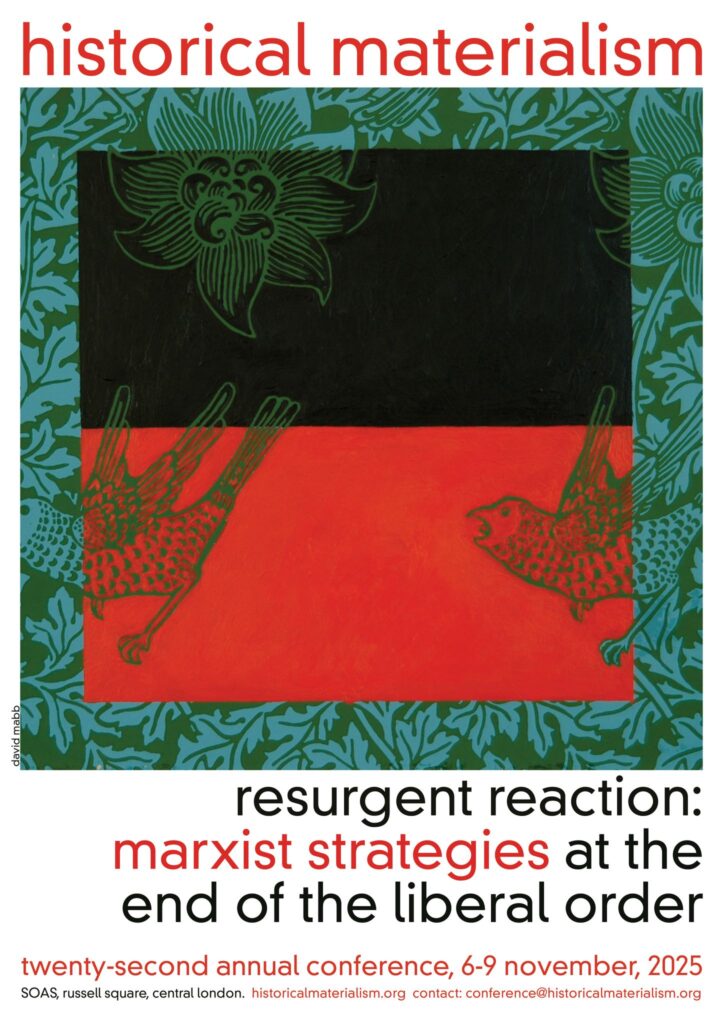*DEADLINE FOR SUBMISSIONS HAS NOW PASSED*
For inquiries contact: conference@historicalmaterialism.org
- Programme
- Registration
- Plenaries
- Venues
- Lodging
- Workers and Capital Stream
- General Conference CfP
- Marxism and Culture Stream
- Gender, Sexuality and Feminist Struggles Stream
- New Technologies and Capital Accumulation Stream
- Imperialism Reloaded Stream
- Philosophy and Fascism Stream
- PGR pre-day
- Submission Instructions
- Submit Paper
- Submit Panel
There will be no printed programmes for all delegates at this year’s conference. We have a PDF version of the programme that you can download below and print at home (although, bear this in mind, it will be subject to change, even once the conference has started).
That is why we encourage you to use the online conference programme, accessible on your mobile phone and in a browser: https://conference.historicalmaterialism.org/
We will aim to update the online programme at least once per day during the running of the conference, and it is there that you can find all paper abstracts.
- Downloadable PDF programme: download here
- Online Programme Link: https://conference.historicalmaterialism.org/
-
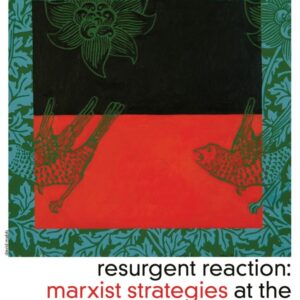
Twenty-Second Annual Conference Registration
Price range: £50.00 through £250.00 This product has multiple variants. The options may be chosen on the product page
Thursday 6 November
Marxism, Literature, and Political Commitment
with Angela Dimitrakaki, Terry Eagleton and Lea Ypi
7-9 PM
Friday 7 November
Isaac and Tamara Deutscher Memorial Prize Winner Lecture:
Matteo Pasquinelli
Vectors for Workers: Models of Automation and Autonomy in the Long AI Century
6.30-8.30 PM
Saturday 8 November
Resurgent Reaction and the Rise of New Authoritarianisms
with Wendy Brown, Cecilia Rikap, Jeffery Webber and Rafeef Ziadah
6:45-8:45 PM
Sunday 9 November
Marxist Strategies at the End of Liberal Order
with Houria Bouteldja, Katy Fox-Hodess, David McNally and Alex Stoffel
5-7 PM
| Lodging HM London 2025 | |||||
| The conference venue is at School of Oriental and African Studies (SOAS), in the Bloomsbury area of central London, with many hotels close by. The neighbourhood includes many attractions and museums, and is very popular with tourists. As a consequence of this, there are many hotels in the area but they are pricey. We hope the following might be helpful in finding accomodation, and is designed to suit a range of pocket sizes. Some of these options come recommended, although we have not visited all of them and cannot guarantee quality. We also recommend you to find hotels further afield that have good transit options for reaching central London, and have included some websites that are good for finding a variety of lodgings. The CityMapper app is helpful for getting around London. |
|||||
| Hotel Name | Room Types | Price Estimates: 6/11-9/11 | Address | Distance to Conference | |
| Hostels | Smart Russel Square Hostel | Mixed dorms of 4-12 | £62-90 | 71-72 Guilford Street, WC1N 1DF | Walking Distance |
| Astor Museum Hostel | Mixed/gendered dorms of 4-15 Twins |
£181-270 £490-545 |
27 Montague Street, WC1B 5BH | Walking Distance | |
| Generator Hostel | Mixed/gendered dorms Twins |
£29-42 (per night) £111-144 (per night) |
37 Tavistock Place, WC1H 9SE | Walking Distance | |
| YHA London Central Hostel | Gendered dorms | £125 | 104 Bolsover Street, W1W 5NU | Walking Distance (0.8 miles) | |
| YHA London Oxford Street Hostel | Gendered dorms | £135 | 14 Noel Street, W1F 8GJ | Walking Distance (0.7 miles) | |
| YMCA Indian Student Hostel | Singles & Doubles | £315-750 | 41 Fitzroy Square, W1T 6AQ | Walking Distance | |
| Palmer's Lodge Swiss Cottage | Mixed/gendered dorms of 4-24 Triples |
£28-75 (per night) £200 (per night) |
40 College Crescent, NW3 5LB | ~30 mins via underground ~45 mins via bus |
|
| St. Christopher's Village Hostel | Mixed dorms of 4-33 Singles & Twins |
£25-43 (per night) £116-139 (per night) |
165 Borough High Street, SE1 1HR | ~35 mins via underground ~40 mins via bus |
|
| Safestay Hostel Elephant & Castle | Mixed/gendered dorms of 4-8 | £16-20 (per night) | 144-152 Walworth Road, SE17 1JL | ~30 mins via underground ~40 mins via bus |
|
| Safestay Hostel Kensington | Mixed/gendered dorms of 6-21 | £13-20 (per night) | Holland Walk, W8 7QU | ~30 mins via underground | |
| Wombat's City Hostel | Mixed/gendered dorms of 4-8 Doubles & Twins |
£41-48 (per night) £154-160 (per night) |
7 Dock Street, E1 8LL | ~35 mins via underground ~45 mins via bus |
|
| Hotels | Travelodge Central Euston | Doubles | £463-£522 | 1-11 Grafton, Place NW1 1DJ | Walking Distance |
| Travelodge Covent Garden | Doubles | £519-£630 | 10 Drury Lane, WC2B 5RE | Walking Distance | |
| Travelodge King's Cross | Doubles | £409-507 | 356-364 Grays Inn Road, WC1X 8BH | Walking Distance (0.9 miles) | |
| Travelodge Walthamstow | King Size | £293 - £442 | 2 Station Approach, E17 9QF | ~30 mins via underground ~1hr via bus |
|
| Travelodge Finsbury Park | King Size | £331-£394 | 185-187 Isledon Road, N7 7JR | ~20 mins via underground ~40 mins via bus |
|
| easyHotel Paddington | Singles Doubles |
£283 £339 |
10 Norfolk Place, W2 1QL | ~25 mins via underground ~30 mins via bus |
|
| easyHotel Victoria | Doubles | £357-487 | 34-40 Belgrave Road, SW1V 1RG | ~30 mins via underground ~35 mins via bus |
|
| easyHotel South Kensington | Doubles | £346-394 | 14 Lexham Gardens, W8 5JE | ~30 mins via underground ~1hr via bus |
|
| Close but Pricey | Mabledon Court Hotel | Singles Doubles |
from £383 from £410 |
10-11 Mabledon Place, WC1H 9AZ | Walking Distance |
| Ambassadors Hotel | Singles Twins Doubles |
from £627 from £657 from £657 |
12 Upper Woburn Place, WC1H 0HX | Walking Distance | |
| Royal National Hotel | Singles Twins Doubles |
from £450 from £510 from £540 |
38-51 Bedford Way, WC1H 0DG | Walking Distance | |
| The Tavistock Hotel | Singles Twins Doubles |
from £555 from £651 from £651 |
48-55 Tavistock Square, WC1H 9EU | Walking Distance | |
| President Hotel | Twins Doubles |
from £610 from £610 |
56-60 Guilford Street, WC1N 1DB | Walking Distance | |
| Bedford Hotel | Single Twin Double |
from £600 from £690 from £720 |
83-95 Southampton Row, WC1B 4HD | Walking Distance | |
| Other Sites to Check: | |||||
| Stay in a Pub | |||||
| Late Rooms | |||||
| KAYAK | |||||
Workers and Capital Stream
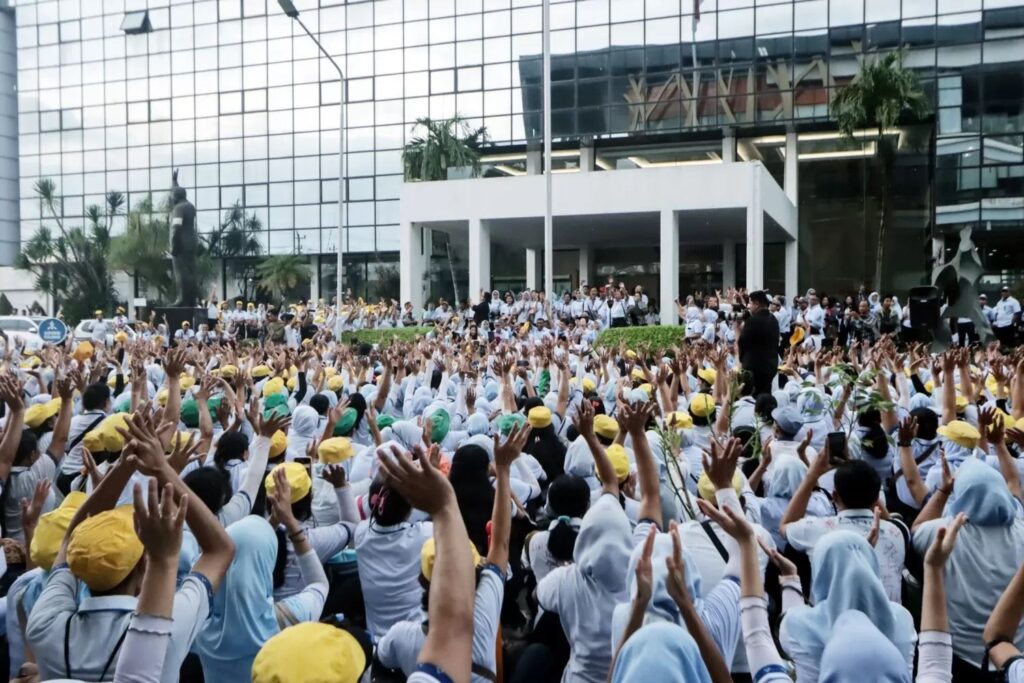
Amidst escalating crises in the global economy, including ongoing inflationary pressures, new waves of technological transformation, and intensifying geopolitical conflicts, the conditions of workers remain a critical site for Marxist analysis and political struggle. Workers worldwide face stagnant wages, precarious employment, heightened labour discipline and the erosion of collective bargaining power and rights. At the same time, emergent forms of worker organisation and transnational solidarity present new possibilities for resistance. This stream aims to foster dialogue on these dynamics by centring inquiries into the changing composition of the working class, the restructuring of labour processes, and the evolving forms of exploitation and resistance.
The stream is jointly hosted between Notes from Below and the new Historical Materialism: Workers and Capital journal. It is a development of the longer-running “Workers Inquiry” stream from the HM London Conference. Historical Materialism: Workers and Capital is a new Marxist academic journal and part of the wider Historical Materialism project, including the main Historical Materialism: Research in Critical Marxist Theory journal, the book series, the annual London conference, and affiliated international conferences.
This stream, like the new journal, calls for contributions on the topics of labour and work, broadly conceived. As with the Historical Materialism project more widely, we believe that it is important to have accessible academic venues for Marxists to publish, but do not require those submitting to be involved in a university. We are inviting submissions to the conference that focus on work, workers, and capital. As in previous years, we welcome submissions that present workers’ inquiries.
For the stream, we are particularly interested in contributions on the following topics:
- Labour process analysis
- Labour sociology, sociology of work
- Workers’ inquiries and analysis of class composition
- Papers authored or co-authored by workers about their experiences.
- Technologies in work/production
- Work, employment, and the law
- Different methodological approaches to studying workers and capital
- Gender, race and disability politics and work
- History of work and the workers’ movement
The stream is open to contributions from participants with any or no experience of presenting at academic conferences. We are always keen to support participation, including developing initial ideas, helping draft abstracts for papers, the preparation of presentations, or anything else that can support new speakers at the conference. While many papers at the conference take the form of a panel of speakers each talking for 15-20 minutes or so, we have used different formats like roundtables, shorter talks, Q&A, and so on in the past and are open to alternative suggestions. As with previous years, we hope to have a stream that brings together workers, organisers, and Marxist researchers. We will, of course, be organising a social event as part of the stream.
Resurgent Reaction: Marxist Strategies at the End of the Liberal Order
*DEADLINE HAS NOW PASSED*
This year seems to mark the high point, or rather the low point, of the right-wing turn of the last five years. The victory of Donald Trump, the election of Javier Milei, and the advance of the AfD are just some examples of the rapid rise of the forces of the racist, anti-migrant, ‘anti-woke’ right. Beyond the electoral sphere, we have witnessed a larger backlash against even basic liberal achievements – anti-racism, feminism, gender and sexuality, with most mainstream parties (‘centre-right’ and ‘centre-left’) embracing the rhetoric and strategy of the far right.
At the same time, capitalism appears to have become more vulgar than the wildest dream of any Marxist. The state no longer seems to require a complex analysis of its connections with class power, rather certain factions of the bourgeoisie simply turn the state apparatus to their own ends. Inter-imperialist rivalries are conducted brazenly in the open, murderous racial violence in service of imperialist accumulation is barely hidden, and capitalist states have abandoned even the veneer of fighting the ecological crisis. Rather, big tech and monopoly capital assert their social power and interest with uninhibited immediacy. The more than obvious contradictions of accumulation – economic stagnation, the persistence of inflationary tendencies, the absence of productivity leaps – are dealt with simply by treating the global workforce as fully expendable.
The left appears to be defeated on almost all fronts. Despite the persistence of movements and forms of resistance, above all the global movement against the genocide in Gaza, many organisations of the left seem to be disoriented, oscillating between the supposed safety of theoretical purism and misguided attempts to coopt the right’s agenda on issues of migration, culture and identity. What is lacking is a clear strategic path.
How do we respond to this? Faced with such horror, the temptation is simply to fight back. But fighting back is not enough. The enduring lesson of the Marxist tradition – from Marx’s work in the reading room of the British Museum, to Lenin’s readings of Hegel in exile, through Gramsci’s Prison Notebooks – is of the need to analyse. We cannot develop strategies to tackle new conjunctures without understanding their logics, their class configurations and their changing material circumstances.
It is to this task that the 2025 Historical Materialism London Conference turns its attention – how can we understand the deeper logics and complexities behind a capitalism which seems to stand before us shorn of all illusion and artifice? How can we chart the new configurations of racialisation, migration and imperialism? To what extent are we witnessing the birth of new regimes of accumulation – and are these changing the very nature of capitalism? How can we map out the shifting patterns of fossil capitalism and planetary destruction? And, above all, how might we put this understanding in the service of revolutionary transformation, of new strategies and tactics for fighting, organising and building alternatives to the barbarism that surrounds us?
In line with the central theme of this year’s conference, we particularly want to invite contributions that address the following non-exclusive questions:
- The continuous rise of the far right and new forms of fascism
- Race, racism and racialisation in relation to changing capitalist social relations
- Marxist theories of the authoritarian transformation of capitalist states
- The contemporary backlash against feminism, gender, sexual and reproductive rights
- Marxist critiques of sexism, patriarchy, heteronormativity and cisnormativity
- Contemporary forms of imperialist aggression
- Marxist responses to the climate catastrophe and fossil capital
- The dynamics of capitalist accumulation and the new attacks on the working-class
- Questions of left strategy and tactics in the current conjuncture
- Contemporary resistances and the lessons for organising
Whilst we encourage papers and panels that address these themes, as always, the Historical Materialism conference seeks to provide a space for critical Marxist theory and research across the globe and a range of disciplines and interests, so submissions on other themes are welcome.
The following streams will each also be issuing individual CFPs:
- Workers and Capital Stream
- Marxism and Culture Stream
- Gender, Sexuality and Feminist Struggles Stream
- New Technologies Stream
- Imperialism Stream
- Philosophy and Fascism Stream
- Postgraduate Pre-Conference Day (5 Nov)
We still believe that the format of the in-person conference offers a unique and irreplaceable form that brings together comrades, enables discussion, helps disseminate new and original research, creates research networks and communities, and builds solidarity. Therefore, we will not accept online presentations, except in exceptional and specific cases. Throughout the rest of the year, we also engage in online broadcasts and podcasts.
As in the past, the conference ethos is strictly egalitarian. We invite everyone to contribute in a comradely and collaborative spirit. The conference is open to all currents of critical Marxist theory. We expect all presenters to attend the entire conference (from Thursday noon to Sunday evening), not just their own session. Whilst we recognise that, for health, care and accessibility reasons, this may not always be possible, we believe it is incumbent on all presenters to engage in critical and comradely discussions throughout the conference. There should be no ‘cameo’ appearances. We generally expect all speakers to make themselves available for the whole of the conference, as tailoring a conference of this size around individuals’ preferences and desires is neither feasible nor desirable. The conference is an essential part of the broader Historical Materialism project – including the journal, the book series, the podcast, the broadcasts, and the global network of HM conferences – and we enjoin all conference participants to get involved with these different elements, for example, by subscribing to the journal and submitting their conference paper to us for consideration.
We invite proposals for individual papers as well as for panels, which can be made in response to the general conference call for papers or in response to a particular stream’s call for papers.
For individual papers, we require a paper title and an abstract of no longer than 300 words, up to five relevant keywords, as well as the name, email address, phone number and institutional affiliation of the primary author. For papers with more than one author, we require the name and email address of every corresponding author.
For panel proposals, you can submit either:
a) a pre-constituted panel of 3-4 papers;
b) a roundtable discussion; or
c) a book launch. Panels should usually have a minimum of three participants.
A panel proposal requires a title and an abstract of no longer than 300 words, plus the names and emails of all presenters/participants. For pre-constituted panels, we also require individual paper titles and abstracts of no longer than 300 words.
Precise submission requirements are specified in the online submission forms.
Please note, this is an in-person conference only. Online presentations will not be permitted. It is advised that you do not submit an abstract unless you know you can attend, and, if you have to travel to London from abroad, that you have a valid passport – including those travelling from the EU. We will, of course, help with visa applications but these should be made at the earliest possible moment.
For any inquiries contact conference@historicalmaterialism.org
Marxism and Culture Stream

It is entirely doubtful, perhaps as it has always been, that the institutions of art and culture are capable of fulfilling their minimal liberal promise of providing spaces of critique. As reactionary, chauvinistic, and fascistic political currents swell and aggregate, art and culture increasingly become a repurposed tool for far-right hegemony, seemingly only a minor moment of reorientation in this protracted late-capitalist conservative turn. From a Marxist perspective, we cannot simply countenance outrage at the collapse of a civic order we have always sought to critically and permanently undermine. At the same time, the generalised and global attacks on art, culture, and their institutions are hardly to be understood as significant gains towards social and political emancipation. In this conjuncture, how are we to analyse, delineate, and interpret the role of art and culture, and strategies of artists and cultural workers, in both advancing and combating resurgent reaction?
As part of this year’s Marxism and Culture Stream at the Historical Materialism Annual Conference in London, we propose to foreground these concerns, aiming to think, examine, and combat from a Marxist perspective. Towards these ends, we are soliciting proposals for papers and panels that may include, but need not be limited to, any of the following topics:
- Reactionary forces in cultural institutions
- Infrastructure, logistics, and the crises of cultural institutions
- Anti- and non-institutional artistic, literary, and cultural practices
- The politics and aesthetics of AI slop
- Marxist contra reactionary aesthetic categories
- Fascist modernisms and the post- or late-fascist contemporary
- Marxism, art, and strategies of abolition
- Class contradictions in artistic, literary, and cultural form
- Chauvinistic iconography and national myth
- Historical and contemporary labour struggles in art and culture
- The authoritarian character of art and its histories
- Art and culture in the protracted conservative turn
- Maintenance, waste and infrastructural critique
- Political economy of the arts after neoliberalism
In addition, we welcome paper and panel proposals outside this overarching theme but which speak to topical concerns. In particular, we would like to encourage papers and panels on the history and legacies of Fredric Jameson’s work, who passed late last year.
General submissions on Marxism – in all its various interpretations – and art, culture, and literature – in all its various forms – are also encouraged. Submissions may be developed based on theoretical argument or textual readings, historical case studies or empirical analysis, or critical interpretation of specific artworks, novels, poems, films, plays, compositions, etc. Provided it is Marxist in orientation, we encourage cross-disciplinary analysis that emerges from academic research and activist practices.
Complete panel proposals of three or four persons and roundtables on specific themes, books, or concepts are also encouraged. If you would like to discuss a proposal in advance, please email: conference@historicalmaterialism.org.
Gender, Sexuality, and Feminist Struggles Stream

The Gender, Sexuality, and Feminist Struggles Stream (GSF) — formerly the Marxist Feminism Stream (MarxFem) and the Sexuality and Political Economy Network (SPEN) — invites submissions for panels and individual papers for the upcoming Historical Materialism annual conference.
This stream invites contributions that explore the intersections of gender, sexuality, Marxist-feminism, and class struggle in theoretical, historical, methodological and contemporary contexts. We particularly encourage contributions that build on the synergies between Marxist-feminist, queer, and trans engagements with Social Reproduction Theory and the critique of political economy. Equally we welcome the analysis of gendered and racial forms of oppression and class exploitation under capitalism and encourage discussion on how to fight them.
Indicative topics include (but are not limited to):
- Queer and trans Marxism: What insights do queer and trans perspectives bring to Marxist theory and practice? How do they expand or challenge traditional Marxist categories?
- Social reproduction: How can Marxist approaches deepen our understanding of the intersections between gendered labour, sexuality, and the reproduction of capitalist social relations?
- Feminist philosophy: How do Marxist feminist critiques of political economy contribute to epistemological, aesthetic, and philosophical debates within feminist theory?
- The rise of the far-right: What role do Marxist understandings of gender and sexuality play in current organised collective resistance to various far-right formations?
- Transfeminism and class struggle: What role does transfeminism play in theorising and resisting capitalist exploitation and domination?
- Historical and contemporary movements: What lessons can be drawn from feminist, queer, and trans movements for socialist, communist, and abolitionist struggles? How have these movements shaped or been shaped by Marxist thought?
- Ecology and reproductive justice: How are struggles for ecological sustainability connected to feminist and queer Marxist analyses? What can Marxism reveal about the intersections of environmental degradation, gendered labour, and reproductive justice?
- Imperialism and anti-colonial struggle: How do imperialist social relations reinforce gendered and sexual domination? How do Indigenous perspectives intersect with Marxist feminist and queer frameworks?
- Cultural representations and ideology: How do cultural forms (arts, literature, media) reflect and contest capitalist gender and sexual norms?
- Internationalism and global solidarity: How do gender and sexual struggles manifest across different regions? What does international solidarity look like in addressing gendered and sexualised oppressions under global capitalism?
New Technologies and Capital Accumulation: Contradictions, Struggles, and Alternatives

As the stochastic parrots of large language models increasingly reproduce the banalities and ideological detritus of mainstream discourse, it becomes more urgent to approach technology as a key terrain of class struggle and ideological contestation. It’s not just that these new technologies, their technical development and social application, are today firmly in the hands of private corporations. But it is that even the production of knowledge about these technologies, including theI the mainstream critiques of them, that are coming from tech giants’ labs. Some of the most important critiques of bias, surveillance, and invisibilised labour exploitation in AI remain significantly shaped by the constraints placed upon corporate-funded research (even more stringent than those of academia) and the limits of liberal reformism. This raises the urgent need to develop critical Marxist spaces for rigorous inquiry including into the material conditions of knowledge production: How can critical research on technology break from the ideological grip of capital? What alternative frameworks can expose the underlying dynamics of technological development as a force of capitalist accumulation rather than neutral progress?
In recent years, we have seen the growth of new technologies that claim not only to be efficient tools of automation, control and surveillance but also as devices that deepen the fetishism already inherent in capitalist social relations. Platforms and algorithmic management further mystify the origins of knowledge, decision-making, and value, displacing them onto inscrutable algorithms and “intelligent” machines, while concealing the vast networks of exploited labour, extractive infrastructures, and social hierarchies that make such systems possible. An historical materialist approach is thus essential to demystify these processes, unveiling how new technologies operate within the political economy of contemporary capitalism—not as a rupture, but as a continuation and intensification of capital’s logics of accumulation, enclosure, and surveillance. From data extraction and cloud infrastructures to platform monopolies and algorithmic management, the development of digital technologies should be situated within the broader dynamics of capitalist reproduction, imperial domination, and the subsumption of life under the imperatives of value.
This dedicated stream invites contributions that critically interrogate the role of emerging technologies—Artificial Intelligence, digital platforms, blockchain—within the structural dynamics of global capitalism. Far from being neutral forces, these technologies are embedded in and shaped by the imperatives of capital accumulation, class struggle, and the contradictions of the contemporary economic order. How do new technologies deepen exploitation, reorganise production, and transform the conditions of labour? What counter-hegemonic movements and political strategies can contest the power of digital capital? What new constraints do these technologies bring as a “hostile power” to working class emancipation?
We welcome theoretical and empirical contributions engaging with themes such as:
- Technological automation and the restructuring of work: the changing composition of the working class, new forms of labour discipline, deskilling, and precarity.
- The international division of labour in the digital economy: digital imperialism, value extraction in the Global South, and technological dependence.
- Technology and resistance: workers’ struggles against digital labour regimes, alternative technological imaginaries, and the renewed socialist planning/calculation debate
- Platformisation: as a new space of accumulation, algorithmic control, and the commodification of social life.
- Large Language Models (LLMs) and genAI: The role of LLMs and the novelties of generative AI in the real subsumption of intellectual labour and the automation of content creation
- Blockchain, decentralisation, and financialisation: myths of ‘trustless’ governance versus the real subsumption of economic transactions under capital, material infrastructures
- Political economy of artificial intelligence: AI embeddedness in capital accumulation, productivity enhancer and intensified labour exploitation
- Data and Value Extraction: The commodification of data, the explosion of synthetic data and the role of datafication in extending capitalist accumulation in the long history of capital’s quantification and objectification
Imperialism Reloaded
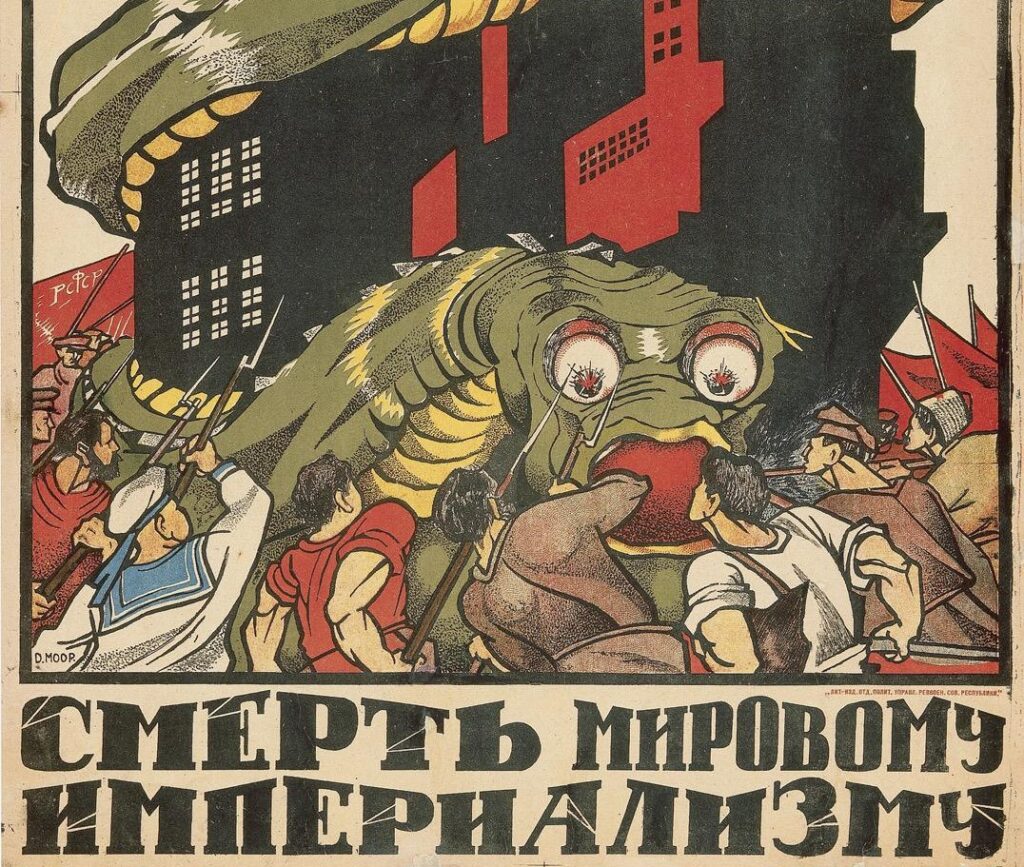
Over the last few years, it seems that everyone is becoming a theorist of imperialism. This should be good news for Marxists, since, for us, there is no doubt that imperialism is the core driver of world order and disorder. Theorising this process allows us to see how states and international institutions are responsible for or complicit in war, famine, and underdevelopment. Crucially, it shows the dialectical interconnections between regimes of accumulation, class strategies, hegemonic projects, and ideologies, whilst also revealing how states’ relations are hierarchical and antagonistic. But Marxist theory has also a key role to play in avoiding a false binary between the good versus bad imperialists – a binary which is becoming more prevalent in the context of rising inter-imperial rivalries. The concept is in effect increasingly used by states and institutions to portray themselves as harbingers of peace and democracy against other states and institutions they consider as imperialist invaders or pretenders.
One of Marxist theory’s crucial contributions to history is to reveal that modern imperialism is inextricably linked to the emergence and development of the capitalist mode of production. Since Lenin, imperialism cannot be avoided as a constitutive or collateral element of how capital shapes power. And, for Marxists, that power – or the behaviour of states on the international plane – is ultimately determined by their class relations and the strategies of capital. If imperialism remains rooted in the analysis of capital, this broad concept of political, military, economic, legal and cultural expansion, inseparable from the concept of empire, has been the subject of endless controversy and debate among Marxists. Every generation of Marxist thinkers and revolutionaries has tried to make sense of the role of inter-imperial rivalries in shaping international orders, and of the complex ways through which capitalism is, most often than not, dependent on this colonial and racial drive for accumulation and expansion, in terms of resources, peoples, and, crucially, spaces; whether aerial, territorial or maritime. Today is no exception, as imperialism is being literally reloaded by a range of super and rising powers using various shades of colonial and racial arguments and mechanisms.
If the US’s status as an imperialist power has been the ordre du jour for a century, China and Russia have, over the last two decades, gradually been pushing commentators across the spectrum to rethink the so-called Pax Americana. It is now clearly the end of the illusion of liberal internationalism and its institutions, even for liberals, and the new world order is as much an open and blank book as the opportunity for old patterns to re-emerge. And, contrary to the “globalisation” rhetoric of previous decades, it is obvious imperialist antagonisms not only persist but have also intensified.
Is the US in decline and if so, in what ways? Is China the new leader in the endless series of hegemonic cycles (Arrighi, 2009)? How can we define and differentiate its potential imperialism from Russia’s? Is the ‘new cold war’ now in full swing (Achcar, 2023)? Or are we in a continuous crisis of imperialism, a ‘global war regime’ or ‘war without end’ (Hardt and Mezzadra, 2024)? How are other rising powers joining these new rivalries? Has multipolar rather than unipolar imperialism always been the norm (Gordon and Webber, 2024)? Can we see a new phase and movement of non-alignment by the Global South, either against the US or against all forms of imperialism? Is digital capitalism – or technofeudalism – and its key infrastructures more, or less, imperialist? How useful are concepts such as “subimperialism” or “regional imperialism” in the current conjuncture?
This CFP and stream aim to put imperialism back on the table as a key theoretical device for Marxist theory and as an empirical marker for the current changes to the world order. We welcome papers and panels that question its capitalist and pre-capitalist history, its various stages, its relation to colonialism and other forms of territorial expansion and accumulation, and the various and complex ways in which it manifests itself. From classic geopolitical perspectives of nineteenth century empires clashing on the battlefields of their colonies and metropoles, to the more cultural, digital and ideological networks of empire since globalisation, imperialism has served many purposes and has worn many clothes. We want to question classic analyses as much as retrieve what they can teach us about today’s conjuncture. We want to avoid the Western or Northern perspectives that marginalise Southern voices in terms of what imperialism means, how it is conducted, and how it can be resisted. We want to explore new vocabulary to give a new impetus to analyses of international relations and avoid classic binaries. And we want to contribute theoretically to forging movements in resistance to imperialism that are not based on an identification with one or the other pole of contemporary antagonisms but on the basic Marxist premise that getting rid of imperial rivalry, oppression, colonialism and war means also getting rid of capitalism and creating new alliances of the subaltern classes.
Achcar, G. 2023, The New Cold War: The US, Russia and China from Kosovo to Ukraine, Saqi
Arrighi, G. 2009, Adam Smith in Beijing:Lineages of the Twenty-First Century, London: Verso
Gordon, T. and Webber, J. R. 2024, ‘Prelude to a New Imperial Order?’, Spectre, 26 April 2024, https://spectrejournal.com/
Hardt, M. and Mezzadra, S. 2024, ‘A Global War Regime’, Sidecar, 9 May 2024, https://newleftreview.org/
Philosophy and Fascism Stream
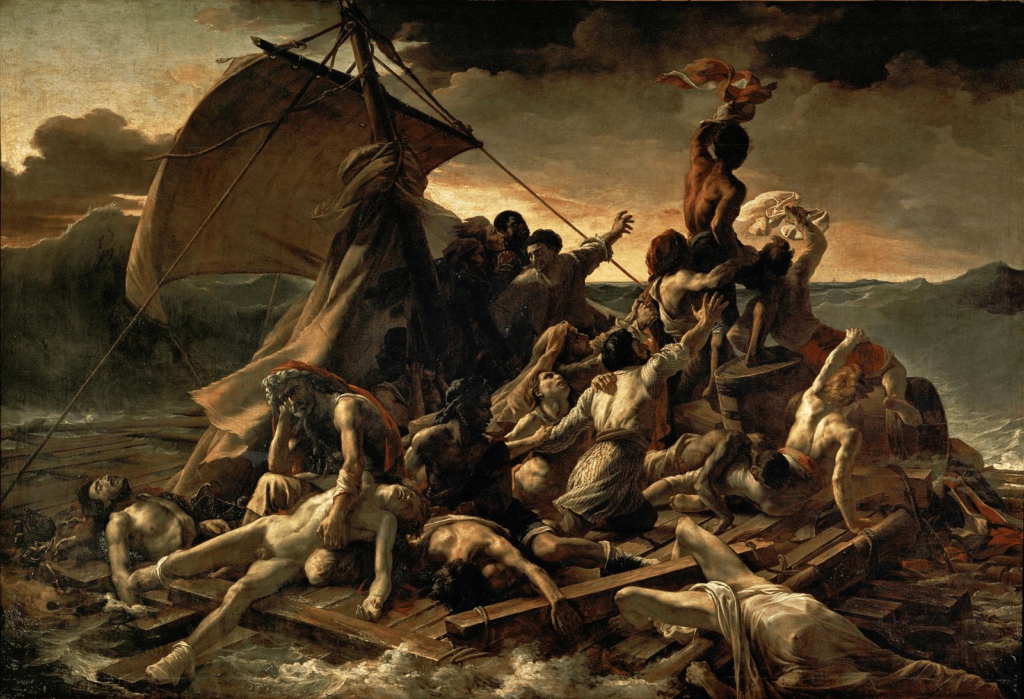
We invite submissions for the Philosophy and Fascism stream at the upcoming Historical Materialism London Conference. This stream aims to engage critically with the intersections of Marxism, philosophy, and fascism, both historically and in their contemporary manifestations. As the global political landscape witnesses the resurgence of authoritarianism, far-right movements, and genocidal militarism, it is imperative to revisit and extend the Marxist critique of fascism in light of current conditions. We seek to create a space for theoretical reflection that draws on the rich tradition of Marxist philosophical thought while grappling with the conceptual peculiarities of both fascist and anti-fascist thought in the present conjuncture.
This stream invites papers that explore the complex ideological and philosophical dimensions of fascism, including its relation to capital, race, gender, nation and empire. We are particularly interested in contributions that examine how contemporary forms of authoritarianism and far-right politics adapt and mutate under conditions of neoliberal crisis. How do the ideological struggles of the moment and the far right positioning as anti-woke, anti-gender and anti-truth/science relate to inflationary crisis economies, the collapse of the planet’s ecosystem and the interests of the ruling classes within this unfolding polycrisis? To what extent are the 20th century debates about the force of myth or ‘collective fantasy’ and fascism’s irrationality relevant today? Does it even make sense to use the concept of fascism beyond the conjunctural specificity of its rise in the inter-war period in Germany and Italy, countering a real communist revolutionary force in Russia and beyond? Equally, we welcome analyses of the philosophical responses to fascism emerging from the overlaps between Marxist, anti-racist, anti-colonial and feminist traditions that expose the global and racialised dimensions of fascist violence and its contestation.
We encourage papers that address, but are not limited to, the following themes:
- Marxist Theories of Fascism: Classical and contemporary Marxist philosophical analyses of fascism and its relation to capital accumulation, crisis, and class struggle.
- The Politics of Analogical Thinking: Examining the political and theoretical implications of analogical thinking for Marxist analysis. How does historical specificity shape the extrapolation of categories like “fascism,” “Nazism,” “authoritarianism,” and “populism” in diagnosing the present moment?
- Philosophical Foundations of Fascist Ideology: The conceptual and philosophical underpinnings of historical and contemporary fascist movements; the ways in which fascist thought has adapted to new political and economic conditions.
- Fascism and the History of Marxist Philosophy: How Marxist thinkers (Gramsci, Trotsky, Lukács, Benjamin, Adorno, Bloch, Sohn-Rethel, Losurdo, Poulantzas, Macciocchi, Fortini etc.) have understood and responded to fascism, including tensions and debates within the Marxist tradition.
- Contemporary Fascisms: Theorising the new conceptual terrain of authoritarianism, neo-fascism, and far-right populism in the present conjuncture, with an emphasis on the shifting relationship between state power, racial capitalism, and violence.
- Gender and Fascism: How philosophy of gender analyses and responds to contemporary anti-gender movements and how it understands fascism in its historical and present forms.
- Philosophical Responses to Fascism: How Marxism, anti-racism, feminism and anti-colonial thought can equip us to analyse and resist fascist tendencies within the Kampfplatz of philosophy.
- Race and Fascism: Philosophical perspectives on the entanglement of racialisation, imperialism, and fascist politics, including the colonial roots and global circuits of fascist violence.
- Classical Philosophy and Fascism: The role of classical philosophical traditions in the construction of fascist thought, e.g. liberalism, positivism, vitalism, irrationalism etc.
- Conceptualising Anti-Fascism: The philosophical and political foundations of anti-fascist thought, including its historical forms and the challenges it faces today.
General submissions on Marxism and philosophy, in all its various forms, are also encouraged. Submissions may be developed based on theoretical argument or textual readings, historical case studies, or critical Marxist interpretation of specific philosophical figures. We also encourage interdisciplinary and historically grounded approaches, including those that engage with feminist, anti-racist, anti-colonial, and ecological critiques. Contributions that reflect on the methodological challenges of theorising fascism from a Marxist perspective are also welcome.
HM London PGR pre-day CfP 2025
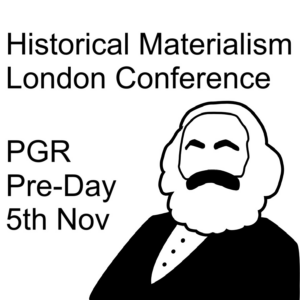
Continuing the success of last year’s first postgraduate pre-conference day, we will be holding it again on the 5th of November, preceding the annual London Historical Materialism conference at SOAS, which runs from 6-9th of November 2025.
The journal Historical Materialism: Research in Critical Marxist Theory organises the London conference, the largest academic Marxist conference in the world. Marxism constitutes the most fertile conceptual framework for analysing social phenomena with an eye to their overhaul. We do not favour any one tendency, tradition, or variant in our selection of materials. The conference has a reputation for rigorous discussion and debate, bringing together participants from across the world.
This pre-conference is intended for postgraduate researchers working with Marxism. We want to develop a space before the main conference where postgraduate students can meet and support each other, receive feedback on ongoing research, discuss relevant practical issues about being a postgraduate researcher with a diverse group of people, and connect with the wider networks of Historical Materialism. The contemporary university, under the influence of neoliberalism, has become less hospitable to radical critical and political thought, including diverse forms of Marxism. In response, our aim is to cultivate a supportive intellectual environment for students engaging with Marxist perspectives. Academic conferences can be an intimidating venue for presenting ideas and, against that, we aim for the pre-conference to be a welcoming space where postgraduates can develop the confidence to participate in the main conference and start to think about publishing their research.
The day aims to provide a space for up to thirty postgraduate researchers to discuss paper ideas, as well as joint discussion sessions. To participate, we first invite potential participants to submit a 100-word abstract and a short bio. Before the pre-day, we invite participants to submit short papers (of approximately 2,000 words) which will receive feedback from Historical Materialism editors. The papers that are ready will be invited to present at the pre-conference. Other than being related to Marxism, there are no restrictions on the topics that the short papers can cover. We particularly invite participants who have never published or presented before, but the pre-conference is open to any postgraduate researcher.
Last year the discussion sessions covered:
- How to be a Marxist in the university
- How to write for radical journals and edited collections
- Publishing from PhD research
- Marxist approaches to research practice
To submit to the postgraduate conference, please send in a 100-word abstract (covering the ideas you would like to present), a short bio, and potential suggestions for topic of discussion via the submission form below by 16 May 2025.For any questions or queries, please email: conference@historicalmaterialism.org
Abstract submission closed
We invite proposals for individual papers as well as for panels, which can be made in response to the general conference call for papers or in response to a particular stream’s call for papers.
For individual papers, we require a paper title and an abstract of no longer than 300 words, up to five relevant keywords, as well as the name, email address, phone number and institutional affiliation of the primary author. For papers with more than one author, we require the name and email address of every corresponding author.
For panel proposals, you can submit either:
a) a pre-constituted panel of 3-4 papers;
b) a roundtable discussion; or
c) a book launch. Panels should usually have a minimum of three participants.
A panel proposal requires a title and an abstract of no longer than 300 words, plus the names and emails of all presenters/participants. For pre-constituted panels, we also require individual paper titles and abstracts of no longer than 300 words.
Precise submission requirements are specified in the online submission form, that can be found in the next tabs (either for panel or for paper submission).
Please note, this is an in-person conference only. Online presentations will not be permitted. It is advised that you do not submit an abstract unless you know you can attend, and, if you have to travel to London from abroad, that you have a valid passport – including those travelling from the EU. We will, of course, help with visa applications but these should be made at the earliest possible moment.
For any inquiries contact conference@historicalmaterialism.org
